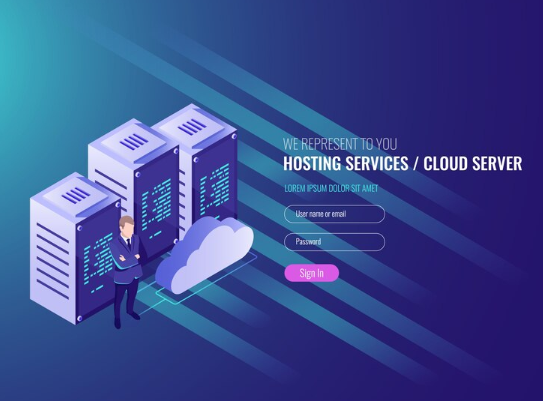AWS Cloud Hosting Services
In today’s digital era, where agility and scalability reign supreme, cloud hosting has emerged as the cornerstone of modern business infrastructure. Among the leading providers in this domain stands Amazon Web Services (AWS), a titan in the realm of cloud computing.
In this article, we delve into the realm of AWS Cloud Hosting, exploring its significance, key features, implementation strategies, and best practices, culminating in a reflection on its future trajectory.
Overview of AWS Cloud Hosting Services
AWS Cloud Hosting services encapsulate a comprehensive suite of cloud computing solutions designed to empower businesses with unparalleled agility, scalability, and reliability.
From infrastructure as a service (IaaS) to platform as a service (PaaS) and software as a service (SaaS), AWS offers a diverse array of tools and services tailored to meet the evolving needs of businesses across industries.
Importance of Cloud Hosting for Businesses
Cloud hosting serves as the linchpin of modern business operations, facilitating seamless access to computing resources, storage, and applications on demand. Its importance stems from its ability to drive innovation, enhance operational efficiency, and lower IT infrastructure costs, thereby empowering businesses to adapt and thrive in an increasingly dynamic marketplace.
Understanding AWS Cloud Hosting
AWS Cloud Hosting, powered by Amazon’s robust infrastructure, enables businesses to leverage scalable and flexible cloud computing resources on a pay-as-you-go basis. It offers a suite of services encompassing computing power, storage, databases, networking, and more, all accessible through a user-friendly interface or APIs.
Advantages of Using AWS Cloud Hosting
- Scalability: AWS Cloud Hosting empowers businesses to scale their infrastructure seamlessly in response to fluctuating demand, ensuring optimal performance and cost-efficiency.
- Flexibility: With a vast array of services and deployment options, AWS accommodates diverse workloads and application architectures, empowering businesses to innovate without constraints.
- Cost-effectiveness: By eliminating the need for upfront infrastructure investment and offering pay-as-you-go pricing models, AWS Cloud Hosting enables businesses to optimize costs and allocate resources efficiently.
Key Features of AWS Cloud Hosting
Elastic Compute Cloud (EC2)
EC2 provides resizable compute capacity in the cloud, enabling businesses to deploy and manage virtual servers with ease. Its auto-scaling capabilities ensure that applications can seamlessly handle varying workloads without manual intervention.
Simple Storage Service (S3)
S3 offers scalable object storage for data lakes, backups, and content distribution, with high durability, availability, and security. Businesses can store and retrieve any amount of data from anywhere on the web effortlessly.
Relational Database Service (RDS)
RDS simplifies database management by offering managed relational database services for MySQL, PostgreSQL, Oracle, SQL Server, and MariaDB. It automates routine tasks such as backups, patching, and scaling, allowing businesses to focus on innovation.
Lambda
Lambda enables serverless computing, allowing businesses to run code in response to events without provisioning or managing servers. It scales automatically and charges only for the compute time consumed, making it ideal for event-driven applications.
Virtual Private Cloud (VPC)
VPC provides a virtual network environment where businesses can launch resources in a logically isolated section of the AWS Cloud. It offers granular control over network configurations, ensuring security and compliance with organizational policies.
Getting Started with AWS Cloud Hosting
Creating an AWS Account
Getting started with AWS Cloud Hosting is a breeze. Simply sign up for an AWS account, choose a pricing plan that suits your needs, and gain instant access to a world of cloud computing resources.
Choosing the Right AWS Services for Your Needs
Selecting the right AWS services entails understanding your business requirements, evaluating the capabilities of each service, and aligning them with your goals and budget. AWS offers extensive documentation, tutorials, and support to help you make informed decisions.
Deploying Applications on AWS Cloud Hosting
Setting up Your Environment
Before deploying applications on AWS Cloud Hosting, configure your environment by provisioning resources such as EC2 instances, S3 buckets, and databases within your VPC. Define security policies, access controls, and network configurations to ensure a robust and secure infrastructure.
Uploading and Configuring Your Application
Once your environment is set up, upload your application code and configure it to leverage AWS services effectively. Utilize tools like AWS Elastic Beanstalk or AWS CodeDeploy to automate deployment, manage versioning, and monitor application health.
Managing Your Application on AWS
Continuous monitoring, performance optimization, and automation are key to effectively managing applications on AWS Cloud Hosting. Leverage AWS CloudWatch for real-time monitoring, AWS Auto Scaling for dynamic resource allocation, and AWS CloudFormation for infrastructure as code.
Best Practices for AWS Cloud Hosting
Security Considerations
Implement security best practices such as encryption, identity and access management (IAM), network segmentation, and regular audits to safeguard your data and applications on AWS Cloud Hosting. Stay updated on security patches and compliance regulations to mitigate risks effectively.
Performance Optimization
Optimize performance by right-sizing resources, leveraging caching mechanisms, and optimizing database queries. Utilize AWS services such as Amazon CloudFront for content delivery, Amazon Aurora for high-performance databases, and AWS Trusted Advisor for performance insights.
Cost Management
Maximize cost efficiency by leveraging AWS cost management tools, such as AWS Cost Explorer, to analyze usage patterns, identify cost drivers, and optimize resource utilization. Implement cost allocation tags, reserved instances, and spot instances to reduce overall expenditure without sacrificing performance.
Case Studies: Successful Implementation of AWS Cloud Hosting
Case Study 1: Company X Saves Costs and Improves Scalability with AWS
Company X, a leading e-commerce retailer, migrated its infrastructure to AWS Cloud Hosting, resulting in significant cost savings and improved scalability. By leveraging AWS services such as EC2, S3, and RDS, Company X achieved greater agility, reliability, and cost efficiency, enabling it to meet growing customer demand seamlessly.
Case Study 2: Start-up Y Scales Rapidly with AWS Cloud Hosting
Start-up Y, a disruptive technology company, leveraged AWS Cloud Hosting to rapidly scale its operations and expand its customer base. By embracing serverless computing with AWS Lambda and utilizing managed services like RDS and S3, Start-up Y achieved unparalleled agility, innovation, and time-to-market, propelling its growth trajectory.
Conclusion
In conclusion, AWS Cloud Hosting epitomizes the pinnacle of cloud computing excellence, offering businesses unmatched agility, scalability, and reliability in today’s digital landscape. From its robust infrastructure to its diverse array of services and best-in-class security, AWS empowers businesses to innovate, grow, and succeed in an increasingly competitive marketplace.
As we look to the future, the evolution of cloud hosting will continue to drive transformative change, enabling businesses to embrace emerging technologies and thrive in the digital age.






